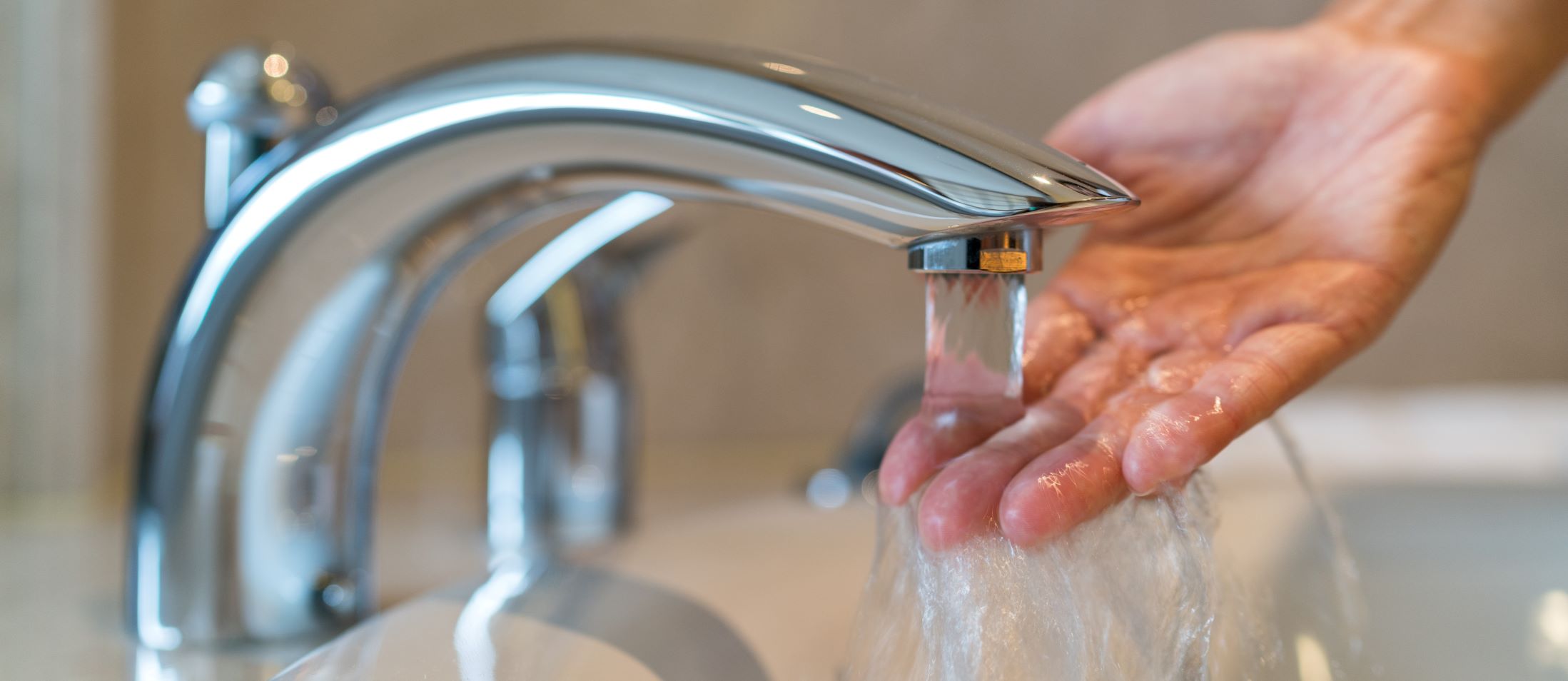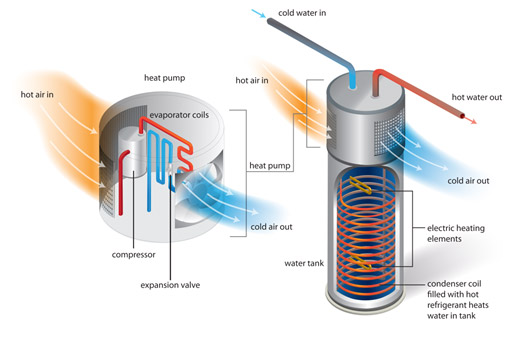
Heat pump water heaters (HPWH) use heat pump technology to draw in heat from the air to heat up water. They are 2 to 3 times more efficient than standard electric resistance water heaters, reducing your annual energy costs for hot water by 67%.
Compared to Energy Star gas water heaters, heat pump water heaters are about five times as efficient and create half the carbon pollution–for about the same annual energy costs.
Most HPWHs are fully indoors, with all pump elements housed in the same unit as the storage tank. Many HPWHs are “hybrid,” meaning that they also include electric resistance heating elements to provide backup heating when hot water demand is high.

Because HPWHs are a different kind of technology than electric resistance or gas water heaters, they also come with some adjustments!
- As they run, HPWHs dehumidify and cool the air around them. While this means you may need a little more space heating in the winter, it can help manage mold and cooling concerns in the warmer summers.
- HPWHs are a bit noisier than a typical water heater, at around the same volume as a window air conditioner. Many folks keep their HPWHs in the basement and barely notice a difference, but reach out to an EnergySmart advisor to talk options if you are particularly sensitive to noise or vibrations.
- HPWHs cost a bit more up front than their counterparts. However, their energy savings typically offset the cost difference–plus, there are some great EnergySmart rebates that can help manage the up front balance as well.
Heat Pump Water Heater FAQ
Compared to Energy Star natural gas water heaters, heat pump water heaters are much more efficient and also reduce CO2 emissions by about 50%.
Costs will vary based on the size and installation needs. Average costs in Boulder County are around $5,000-$6,000 before rebates and incentives are applied, but it’s recommended to consult with a few contractors to get a more accurate estimate.
A heat pump water heater is at least 3 times more efficient than a gas or standard electric water heater. Your savings will depend on the efficiency of the unit, user habits, and other factors in your home.
We suggest consulting with a contractor to learn more, or visit Love Electric for average cost comparisons to other water heaters.
The exhaust air from a heat pump water heater is typically cooler than room temperature. The output of cold air is still warmer than the outside air during a Colorado winter–but contractors will often recommend basement or utility room installation to avoid impacts on temperatures in your main living area.

Ready to get started?
EnergySmart’s list of contractors can help you find the right team for your project. These contractors are excited to work on electrification projects, and have completed EnergySmart projects in the past.

Not sure where to start?
Get a FREE custom guide for upgrading your home. By answering just a few questions, you can get personalized recommendations, cost estimates, rebate information, and more.
